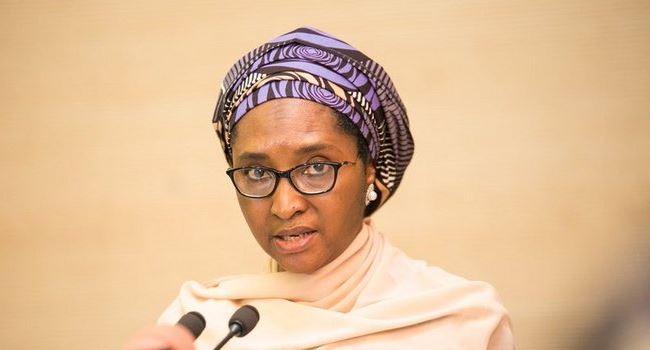Business
Nigeria spent over 60% of revenue on debts servicing in 2019 —Report

The nation’s debt service to revenue ratio is over 60 per cent. Put differently, Nigeria spends more than 60 per cent of its revenue on servicing debts.
This far outstrips the World Bank’s benchmark that debt service to revenue ratio should not exceed 22.5%.
Interestingly, the latest statistics from the Office of the Accountant General of the Federation (OAGF) puts Nigeria’s debt servicing figure for 2019 at N2.11 trillion.
Domestic debt accounted for N1.66 trillion of this while foreign exposure constituted N448.66 billion
The year before, debt servicing consumed N2.2 trillion compared to the N1.68 trillion government spent on infrastructure.
According to BudgIT, that same year 2018 when Nigeria’s debt service to revenue ratio was 61.4%, South Africa’s was 13.7%, Kenya’s was 34.8, Ghana’s was 44.2% while Egypt’s was 54.5%.
Nigeria’s fiscal performance has been largely abysmal since 2015 with government recording 45 per cent (N3 trillion) shortfall in its N7.2 trillion revenue projection for 2018.
As of May 2019, revenue shortfall had hit 51.9%.
Government deficit has widened dramatically with the passage of time with a shortfall of N2.8 trillion proposed for 2020.
According to PricewaterhouseCoopers (PWC), a debt service sum of N2.5 trillion is planned for this year
And the prognosis for this year is gloomier in the light of reverberations of the two far-reaching emergencies that have befallen the global oil market less than two months into the year: the US’s assassination of a top Iran commander and the arrival in January of the defiant Coronavirus.
Budget implementation is severely threatened this year given that oil, which supplies 90% of export earnings, has lately recorded an unhindered crash in price for days on end.
Nigeria’s biggest economic problem is its escalating public debt, says Forbes.
As of third quarter last year, Nigeria’s debt burden had skyrocketed to N26.215 trillion, the debt office said.
And the ambition to borrow a further $23 billion from a consortium of lenders is rigorously pursued by government.
According to the International Monetary Fund (IMF), debt could soar to as high as 36 per cent of the Gross Domestic Product (GDP) by 2024 and interest payment to 74% of revenue should government fail to deploy sweeping revenue reforms.
Nigeria’s weak fiscal base is particularly driven by the country’s overdependence of oil receipts, narrow income sources and the gross inability of government to widen its tax net.
Read also: Gas flaring costs Nigerian Govt N128bn revenue loss in 11 months
In its outlook on Nigeria’s rating last December, American Credit rating agency, Moody’s said “already weak government finances will likely weaken further given an extremely narrow revenue base and persistently sluggish growth that hinders fiscal consolidation.
“As pressures mount, there is a risk that the government resorts to increasingly opaque and costly options to finance a moderate but rising debt burden.
“Moreover, vulnerability to an adverse change in capital flows is building in light of Nigeria’s increasing reliance on foreign investors to fund the country’s foreign exchange reserves.”
There are many vulnerabilities in the nation’s fiscal administration leading to revenue leakages and loss of jaw-dropping sums every year, money that could have gone to giving life to Nigeria’s decrepit infrastructure or other citizen-enriching courses.
For instance, Nigeria loses an average of N1.113 trillion (US$3.072 billion) to oil theft, N3.635 trillion (US$10 billion) to profit-shifting by multinationals and N420.325 billion ($1.15 billion) to maritime crime every year.
Plugging revenue leakage in these three sources alone will enable government generate at least an additional income of N5.168 trillion every year.
That is not to mention myriad other sources where revenue is frittered away every year.
Just two days ago, Bode Agusto, former Director General of the Budget Office revealed that 200,000 wealthy Nigerians are the biggest tax evaders in the country.
Join the conversation
Support Ripples Nigeria, hold up solutions journalism
Balanced, fearless journalism driven by data comes at huge financial costs.
As a media platform, we hold leadership accountable and will not trade the right to press freedom and free speech for a piece of cake.
If you like what we do, and are ready to uphold solutions journalism, kindly donate to the Ripples Nigeria cause.
Your support would help to ensure that citizens and institutions continue to have free access to credible and reliable information for societal development.
























